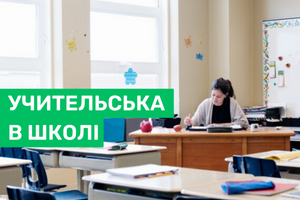The last few years have not been easy: many classes have been canceled due to COVID-19 and the war in Ukraine, there is an alarming teacher shortage, students are showing increasing deficits in learning, pressure to perform is increasing, and times are uncertain. This is the ideal basis for unbridled exam anxiety, but many students also bring personal risk factors with them.

As recently as 10 years ago, a third of primary school students in a survey conducted by the Ukrainian Child Protection Service claimed that school was the main cause of stress and exhaustion. A study in 2015 showed that about one fifth of Ukrainian children and young people suffer from stress due to their family environment.
In this article, you can read what causes exam anxiety and how you can help your students get out of this spiral of anxiety with our many tips.
Content
1. What is test anxiety?
2. Characteristics of exam anxiety
3. Causes of exam anxiety
4. Consequences of exam anxiety
5. Tips and tricks for exam anxiety
5.1. Talking about fears
5.2. Techniques of relaxation from fears
5.3. Practice tests and question sessions reduce exam anxiety
5.4. Tricks for greater peace of mind while working
5.5. When nothing seems to help against intense anxiety about the exam
What is exam anxiety?
Since there are many excellent websites and articles that go into detail about exam anxiety, its characteristics, causes, and consequences, we will limit ourselves to a high-level overview.
Most adults are also familiar with the fear of exams or important meetings such as a job interview. Many have only become more relaxed over the years. As a child, this is much harder to deal with: you have fewer experiences and opportunities for comparison, almost no coping strategies, almost no decision-making options or the ability to avoid exams altogether.
Therefore, the main focus of this article is to help children take control of their fear: so that they are happier, hopefully enjoy learning, go to school, and cope better with the challenges of later (school) life.
Of course (and unfortunately all too often), you as a teacher have little influence over your students. But you can still do a lot. What it is, read below.
Characteristics of exam anxiety
There are a number of typical characteristics that most of us have experienced. This includes:
sweating, freezing or shaking
malaise, nausea, loss of appetite, up to vomiting
stomach ache, headache, and pain and tension that cannot be further defined
palpitations to tachycardia, increased blood pressure
problems with blood circulation
inner restlessness, negative mood
insomnia, nightmares
difficulty with concentration
mental blocks, blackouts
exhaustion due to stress
Frankly speaking: fear is a very unpleasant feeling that no one likes. The symptoms are reminiscent of the disease, except for mild exam anxiety. And no one should take the exam sick. But countless students do it every day.
Causes of exam anxiety
The reasons can be very individual, and many people have a combination of different factors. They include:
negative self-image
little self-confidence
stress or anxiety in general
incorrect learning strategies or strategies that do not suit the child
poor training, perhaps due to inability, lack of opportunities, demanding family environment
fear of failure and fear of the future
insufficient teaching of educational material
perfectionism
negative learning experiences or previous bad grades
too high expectations of yourself
the environment's expectations are too high
fear of punishment, e.g. from parents or bullying from classmates
overload
learning difficulties or also high sensitivity, giftedness, etc.
mental illness; mental disorder
Consequences of exam anxiety
Children are especially vulnerable during the period of development and personality formation. In elementary school, a small argument with your best friend can sometimes turn into a big stress.
However, even mild and/or temporary anxiety before an exam has consequences that in turn increase the anxiety, e.g. for example these:
poor ratings due to blocking and blackout
e.g. severe stress a few days or weeks before work
unwillingness to study or go to school
increasing congestion
In more severe cases, health deteriorates significantly, negative self-esteem strengthens or worsens, fear spreads to other areas, the child misses or refuses to study or (class) work, develops school anxiety, etc.
Tips and tricks against exam fear
Because test anxiety has many different causes, there is no one-size-fits-all cure-all. Some approaches can reduce anxiety or at least let children know they are not alone. Below are some ideas for supporting your students
Talking about fears
Fears make you lonely because they are often associated with shame. Those affected may feel that they are alone with the problem, or may have seen other students who are struggling with the exam being bullied.
Make the fear an issue – maybe before you even know someone is suffering from exam anxiety. Ask your students the following questions:
How do you prepare for class work? You need specific help, e.g. study plan? Do you have a quiet place and enough time to study? (If not, talk to the parents and, if possible, offer the children a place at school to focus.)
How do you feel in the evening or in the morning before studying? Just a little excited or have a headache, stomachache, nausea? (If so, broach the subject of test anxiety, talk to your parents, and consider getting professional help.)
How do you feel about studying?
Do you know that block or shutdown when you just can't think about anything else?
How do your parents react to good or bad grades?
How important are good grades to you?
Is all learning the same for you, or is math more relaxed than Ukai?
Do you have any ideas on how to be less nervous?
Why exactly are you nervous at all?
To break the ice, a story on this topic, whether fictional or from a book, is good. Or you are simply talking about your personal experience through the above questions. This is how you create trust, encourage children to open up, and also convey to the silent the most important thing: you are not alone, I understand you!
Relaxation techniques for anxiety
You have to be the right type for it. There are people who simply cannot do anything with breathing techniques, autogenic training or meditation. Perhaps loud music, exercise, a favorite activity or even half a bar of chocolate will help you instead (sometimes the end justifies the means). So talk about that as well and find out what helps individually, whether by asking questions or simply presenting different methods.
It can also be very specific advice:
Read all the work first and start with what you do best.
If you can't solve the problem, that's okay. Look out the window for a minute, think of something nice, then try again, maybe it will work. The same goes for eclipses: all your knowledge is still there, it just doesn't dare come out when you're nervous.
Ask yourself what could go wrong when you get a bad grade: you lose something important to you, or you get sick, or your house collapses? (If the answer is something like, "No, but then mom will be very angry," you'll need to talk to your parents, of course.)
No one can do everything. It's perfectly fine if you don't like an item. You can do better something else. Tell me what you're good at - what do you like?
Tell us about yourself here as well: in which situations are you nervous or were you nervous? What helps you with stress? In this way, children understand that nervousness is neither dramatic nor unusual, and that there are ways to deal with it.
Maybe a cool set of stress balls is worth it. Therefore, each child has his own personal talisman that helps him during work. When little helpers are not needed, they live as colorful decorations on the classroom shelf. Of course, children can also make their own personal mascot or bring it with them.
Reward your students after work. It doesn't have to be anything big - maybe an hour of reading aloud, an active break. It takes the stress out of even the most jaded and gives them something to look forward to. To calm your nerves before work: color the mandala together or move a little.
Practice exams and question sessions reduce anxiety
Sometimes exam anxiety is based on fear of the unknown. Of course, the tasks refer to what was discussed in the lesson. As a child, this can be enough to make you feel insecure.
The more often you find yourself in the same situation, the more confident you become. So if you can arrange it, have the children write tests which you will then discuss, including time for questions. This should not always be the case, because there is still not enough time for the most important things in everyday school life.
But if you notice that kids are feeling particularly insecure about a topic, keep asking questions they can't handle with the homework, maybe even asking if the work can be put off, this method can relieve a lot of stress. The time spent is well worth it, given the risk of fear-mongering or knowledge gaps being created otherwise. Plus, correcting good work is a lot more fun.
Tricks for greater peace of mind while studying
Create a comfortable atmosphere. At the latest, students are allowed to eat and drink during long exams in secondary schools. Why not earlier? Because, apparently, not every breakfast break ends in a wild fight over cocoa, the victims of which are books and notebooks. It can also help to distract yourself by nibbling on a carrot while you wait for the decision to come to mind. Chewing gum also falls into this category.
Be available for questions and discreetly help out as you work if something gets really stuck. Ask your students if they feel nervous walking around the room. If so, don't do it. You can also see from the table if someone is cheating or copying.
Tolerate any quirks your children may have at work. Staring out the window or staring into space for a few minutes may be trying to clear your head or focus. If you start to wobble, you can compensate with leg kicks or a stress ball without endangering yourself or distracting others. And if you have to go to the bathroom while you're at work, either because you're nervous or to clear your head because the situation is unbearable, of course you're allowed to go. You never know if there is a physical or psychological reason behind it. Of course, we're not talking about the kids who are known to want to go to the bathroom every day during class.
When nothing seems to help against intense anxiety about the exam
If you notice that, for example, if some children have physical ailments or a complete loss of consciousness, often get sick at school and all the little tricks do not work, it is time to encourage psychological help. Talk to the child, exchange ideas with the staff, call the school psychologist, talk to the parents.
Stress is not only a poison for health, but it can also lead to the fact that fear continues to grow, spread to other areas, and become increasingly irrational. The sooner you act, the sooner things will improve. And that should always be the goal.
















































